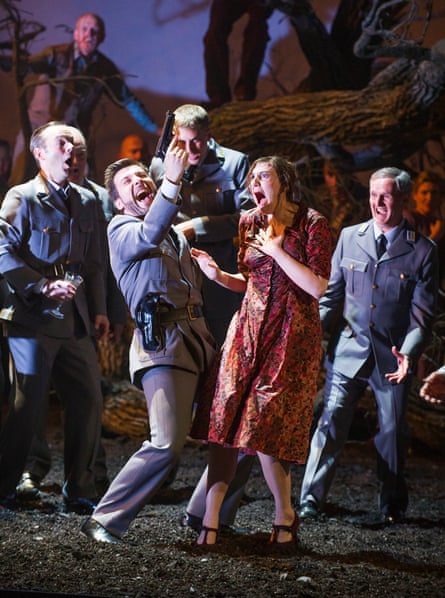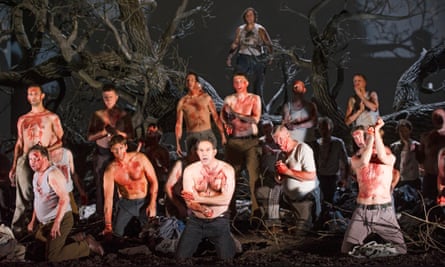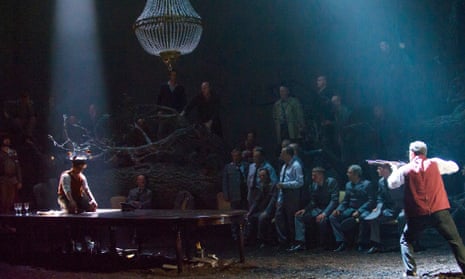The Royal Opera is, perhaps, going to have to start reconsidering its priorities and its relationship with its audience after the first night of Damiano Michieletto’s wretched new production of Rossini’s Guillaume Tell. The groundswell of concern about the bifurcation between musical excellence and weak theatrical standards at Covent Garden has been gathering for some time now. Michieletto’s decision to recast the third act ballet – in which the tyrannical Gesler’s henchmen force a group of girls to dance with them – as a protracted and pruriently voyeuristic gang rape, resulted in an immediate reaction of unprecedented anger, as sustained booing swept through the auditorium, drowning out the music, and continuing until the end of the episode.
A few individuals carried on heckling the singers – unfairly – through to the start of Act IV. Not everyone, it should be added, had got that far. People were voting with their feet as well as their voices: quite a few had already left during the second interval.

The recast scene itself felt completely unnecessary: in Act I, Rossini establishes and registers his horror – by perfectly valid dramatic means – at the fact that Gesler’s men are rapists. It is, however, typical of Michieletto’s approach, which is by turns in your face and intransigent.
Michieletto’s production relocates Rossini’s depiction of 14th-century Swiss resistance to Austrian occupation to what could be any one of a number of post-war conflicts, since Carla Teti’s costumes straddle the period from the late 1940s to the present day. Any claims to integrity are weakened, however, by obfuscating symbolism. The work is refracted through the eyes of Tell’s son Jemmy (Sofia Fomina), who contrasts his father (Gerald Finley) with the legendary Tell (played by an uncredited actor), conjured up from a comic book at the start of the evening, who remains a mute, pervasive presence thereafter. Much is made of a need to reconnect with violated nature. Mathilde (Malin Byström) sings Sombre Forêt while taking most of her clothes off and hugging a tree. The great oath-taking scene involves the male chorus getting their shirts off and smearing themselves with blood and earth.
It says much for the professionalism of the performers that Rossini just about survives this mess. Finley makes a great Tell, noble, eloquent, at once angry yet tender as his political awareness grows. Byström is admirably intense, and there’s fantastic singing from John Osborn in the immensely difficult tenor role of Arnold. Antonio Pappano, long a champion of the work, conducts with tremendous passion. But the evening remains hamstrung by the staging. Michieletto returns next season for Cavalleria Rusticana and Pagliacci, the prospect of which is alarming.

- In repertory until 17 July. Box office: 020-7304 4000. The matinee on Sunday 5 July will be screened live in cinemas.

Comments (…)
Sign in or create your Guardian account to join the discussion